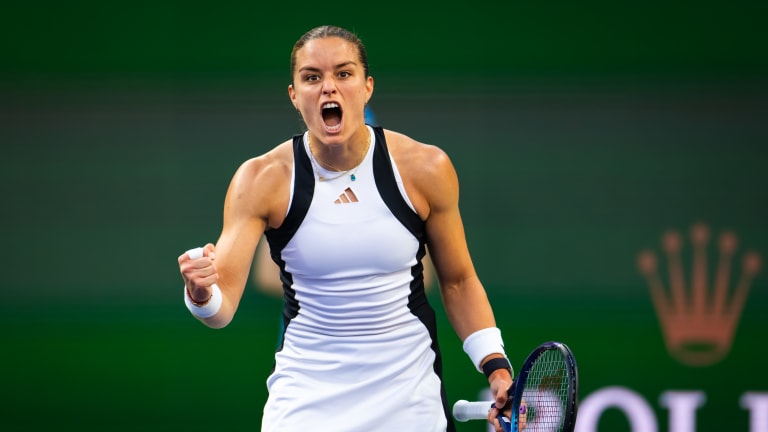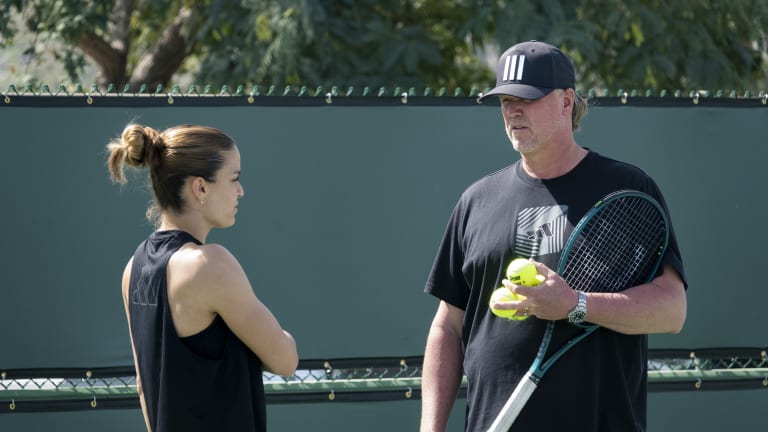Indian Wells, USA
Can David Witt put Maria Sakkari's famous intensity to better use?
By Mar 14, 2024Indian Wells, USA
Mackenzie McDonald is paying the college tennis experience forward with a new fund
By Mar 17, 2025Indian Wells, USA
Mirra Andreeva and Jack Draper win breakthrough titles at Indian Wells: What did we just witness?
By Mar 17, 2025Indian Wells, USA
Jack Draper's run through Indian Wells concludes with his first ATP Masters 1000 title
By Mar 16, 2025Indian Wells, USA
Holger Rune vs. Jack Draper: Where to Watch, Indian Wells Preview, Betting Odds
By Mar 16, 2025Indian Wells, USA
Holger Rune reaches first Indian Wells final over Daniil Medvedev
By Mar 15, 2025Indian Wells, USA
Mirra Andreeva vs. Aryna Sabalenka: Where to Watch, Indian Wells Preview, Betting Odds
By Mar 15, 2025Indian Wells, USA
Mirra Andreeva, 17, advances to Indian Wells final, beating Iga Swiatek in chilly conditions
By Mar 15, 2025Indian Wells, USA
Ruthless Aryna Sabalenka storms past Madison Keys, 6-0, 6-1, in semifinals of Indian Wells
By Mar 15, 2025Indian Wells, USA
Carlos Alcaraz vs. Jack Draper: Where to Watch, Indian Wells Preview, Betting Odds
By Mar 15, 2025Can David Witt put Maria Sakkari's famous intensity to better use?
“He’s just very relaxed,” says the 28-year-old, who is making another deep run at Indian Wells.
Published Mar 14, 2024
Advertising

Sakkari has found success in the California desert previously. In 2018, she reached the round of 16 on her main-draw debut. In 2022, the Greek advanced to the final and followed that effort up with a semifinal showing a year later.
© 2024 Robert Prange
Advertising

Two of Sakkari's three wins with Witt in Indian Wells have come in deciding sets.
© Matt Fitzgerald